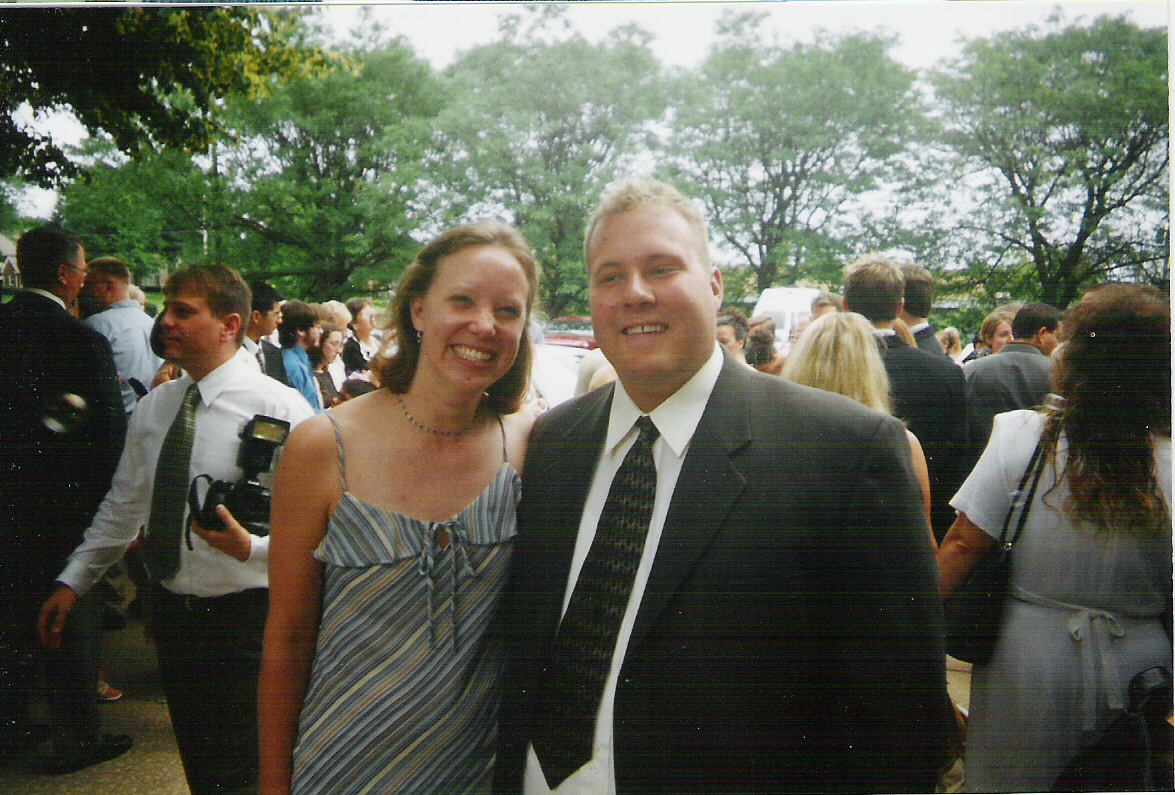What I find interesting about marriage and falling in love is how often in saying "I do," by taking the hand of another, we are taking a leap of faith. We don't know how it will turn out, we don't know what the future holds, but we choose in those moments, those early years, to believe that love is greater than all our faults, that together we are better than we are alone. And one of the traits of early marriage (the "honeymoon" phase) is just how much we achieve. We go from two to one. We bring two of everything: two lives, two homes, two incomes, two stereos, two routines, two separate and distinct people who somehow must unite into one family. We are all pretty much in agreement that those years are difficult, that they are fraught with conflict and hurt feelings, changes and turbulence. But over and over again, couples take that leap of faith and begin a new life together. Because we believe in it.
Some people say the honeymoon is over when reality sets in. Gradually, or maybe suddenly, we don't want to have to work so hard at everything. We are sick of compromise, fed up with sacrificing. We break our vows in a hundred different ways, but what we are really saying is I don't believe in US anymore. We've lost our faith. And isn't it interesting that an affair is often called "being unfaithful"? We begin to imagine a new life, one that doesn't require so much, one in which the house is always clean and the husband never gets sick and the bank account always has money in it. We look for someone else to meet our needs, to satisfy our fantasy of love without sacrifice.
We know that fire is destructive. But fire is also used to strengthen and purify, to mold and shape. Conflict in marriage is like a fire. It can bring us together or leave us sifting through the ashes. There are times when marriages should end. There are hurts and breaks and wounds that can't heal together. There are abuses that shouldn't be tolerated, there are boundaries that shouldn't be violated. But there is no relationship that will come easily all the time. There is no commitment without work. There is no love that doesn't change and transform you.
When the honeymoon is over, that is when Real Love begins. We keep showing up, day after day. We put in the long hours and the sleepless nights and get through the droughts and difficulties together. We begin to realize that this family we are building will never be finished, that as soon as we get into a routine with each other, a baby shows up and disrupts all that. And again, and again, as we add little people, we scramble to keep our heads above water, never actually getting a chance to sit back and see all that is happening as the moments blend into each other and take up all our time.
I think this is why we celebrate anniversaries. It's a chance, at least once a year, to look back and see all that we've accomplished, all the growth that has taken place. It's a day to see all that has come from our act of faith. And we can keep going with proof; proof that we work, proof that we have become so entwined that we are truly one flesh.
So here we are, entering year 11, moving away from the sleepless nights of babies to the busy evenings of easy readers and math worksheets, no longer the young couple working so hard to create something but still working hard to keep it.
To the one that I love: I believe in us. I am thankful for each day that we get through together, for all the ways that we hold each other up. And I have faith that the best is yet to come.











